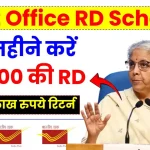
As more senior citizens in India explore independent living or downsizing to more manageable homes, the question “Will senior citizens get home loans?” becomes increasingly important. While many people believe that retirement means an end to financial borrowing, the truth is quite the opposite. Several banks and housing finance companies in India do offer home loans to seniors, but with specific eligibility criteria, risks, and factors to keep in mind.
In this guide, we’ll simplify everything you need to know—from eligibility rules to loan options, repayment tips, and what to consider before applying. Whether you’re a senior planning for a new home or a family member helping your parents, this guide is here to help.
Will Senior Citizens Get Home Loans?
| Detail | Information |
|---|---|
| Eligibility Age | Usually up to 70-75 years (varies by lender) |
| Loan Tenure | Shorter tenure, typically 5-15 years |
| Interest Rate | ~8.50% to 10.50%, varies by bank and applicant profile |
| Repayment Options | EMI through pension, FD interest, rental income |
| Loan Type Options | Regular Home Loan, Reverse Mortgage, Joint Loan with children |
| Income Proof Required | Pension slips, bank statements, Form 16, or rental income proof |
So, will senior citizens get home loans? The answer is a confident yes. But it’s crucial to understand your financial position, select the right loan type, and be mindful of long-term commitments. Whether you’re planning to move into a new home or want to unlock your property’s value through reverse mortgage, there are options tailored for you.
Can Senior Citizens Really Get Home Loans in India?
Yes, absolutely. Most Indian banks and Non-Banking Financial Companies (NBFCs) offer home loans to senior citizens, albeit with some extra caution. The Reserve Bank of India (RBI) and National Housing Bank (NHB) regulations do not prohibit lending based on age. What matters more is repayment capacity. That’s where pension income, savings, or co-applicants come into play.
Some top banks offering senior citizen home loans include:
- SBI Reverse Mortgage Loan
- HDFC Home Loan for Pensioners
- PNB Housing Senior Citizen Home Loan
- LIC Housing Finance Loans for Retirees
These schemes often come with special conditions such as shorter loan tenures and mandatory co-applicants if age is above a threshold.
see also: Follow These 5 Easy Methods to Avoid Shortage of Money After Retirement
Understanding Home Loan Options for Seniors
1. Regular Home Loan (with Pension or Income Proof)
If you’re a pensioner or have regular post-retirement income (like rent, FDs, annuities), you can apply for a standard home loan. However, banks may cap the loan tenure to the age of 70 or 75, depending on the lender. For example:
- If you’re 62 and apply for a home loan, you may get a maximum tenure of 8-10 years.
- Some lenders may ask for a younger co-applicant (like your son or daughter) to strengthen repayment security.
2. Reverse Mortgage Scheme (For Income Without EMI)
Reverse mortgage is ideal for seniors who own a house and want monthly income but don’t want to sell the property. Under this scheme:
- The bank pays you a monthly amount based on your home’s value.
- No EMI or repayment is needed during your lifetime.
- After the borrower passes away, the bank recovers the amount by selling the house (or heirs may repay and retain the house).
Popular among retirees with high-value property but no steady income.
3. Joint Home Loan (With Working Family Member)
Applying for a joint home loan with your son or daughter can:
- Increase your loan eligibility
- Allow longer repayment tenures (based on the younger applicant’s age)
- Help secure better terms
Banks often prefer this option if the senior applicant’s income is limited.
What Documents Are Needed for Senior Citizen Home Loans?
Documentation is key to approval. You’ll usually need:
- Age proof (Aadhaar, PAN, Voter ID)
- Identity and address proof
- Pension slips or income proof
- Bank statements (last 6-12 months)
- Property documents (for purchase or collateral)
- Photographs and co-applicant KYC (if any)
Tip: Maintain a healthy credit score (above 700) and low debt-to-income ratio for easier approvals.
How Much Can Senior Citizens Borrow?
This depends on three main factors:
- Income or Pension Level: Determines EMI-paying ability.
- Property Value: Loan amount usually capped at 75-80% of property value (Loan-to-Value ratio).
- Age & Tenure Left: Shorter tenure means higher EMI; some seniors may prefer lower loan amounts to manage repayment comfortably.
Example:
- Age: 65 years
- Pension: Rs 50,000/month
- Loan Tenure: 10 years
- Possible loan amount: Rs 15-20 lakhs depending on bank criteria
Smart Tips Before Applying for a Senior Citizen Home Loan
Choose the Right Co-Applicant
If your income is low, applying with a younger co-applicant improves your chances. Ensure they have stable income and good credit history.
Consider Shorter Tenure Loans
Though EMIs may be higher, clearing loans early reduces interest burden and ensures debt-free retirement.
Factor in Medical & Living Costs
Never stretch your pension just to accommodate a loan EMI. Factor in your medical, travel, and emergency expenses before deciding EMI amount.
Explore Reverse Mortgage If You Don’t Need a New House
If you already own a home, reverse mortgage can provide monthly income without selling your property.
see also: SBI PPF Yojana: Invest Only ₹12,000 and Collect ₹17 Lakh
Pros and Cons of Home Loans for Seniors
| Pros | Cons |
|---|---|
| Own your dream home post-retirement | Shorter tenure increases EMI burden |
| Tap into family support with joint loans | Requires good health and stable finances |
| Reverse mortgage offers income without selling property | May affect inheritance value for heirs |
Senior Citizens Get Home Loans FAQs
1. What is the maximum age to apply for a senior citizen home loan?
Most banks allow loans till 70-75 years. Some may extend it with a co-applicant.
2. Can I get a home loan without pension income?
Yes, if you have rental income, savings, or a working co-applicant. Otherwise, reverse mortgage may be better.
3. Is a reverse mortgage better than a home loan?
They serve different purposes. Use reverse mortgage for regular income, and home loan if buying a new house.
4. What happens if the senior borrower dies during the loan?
The co-applicant continues repayment. In reverse mortgage, the bank recovers dues from the house value.
5. Are senior citizen loans more expensive?
Not necessarily. Interest rates are generally the same, but risk assessments are stricter.











